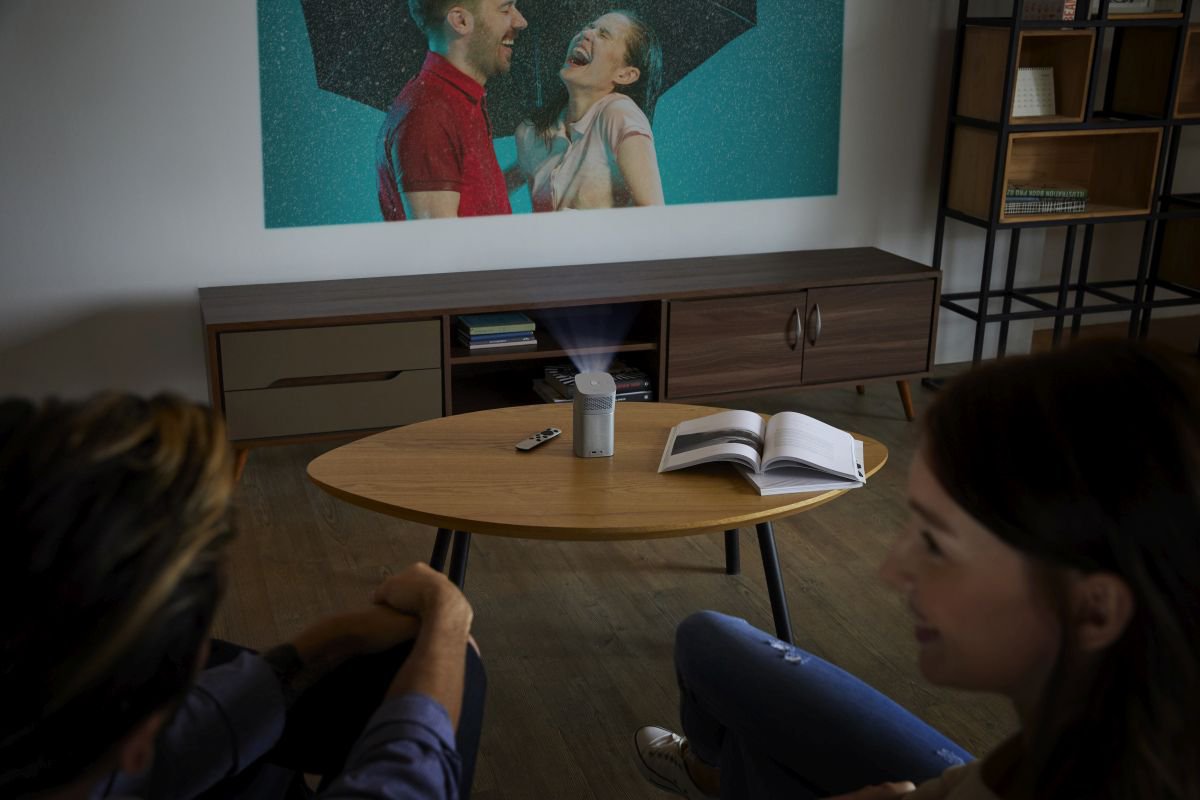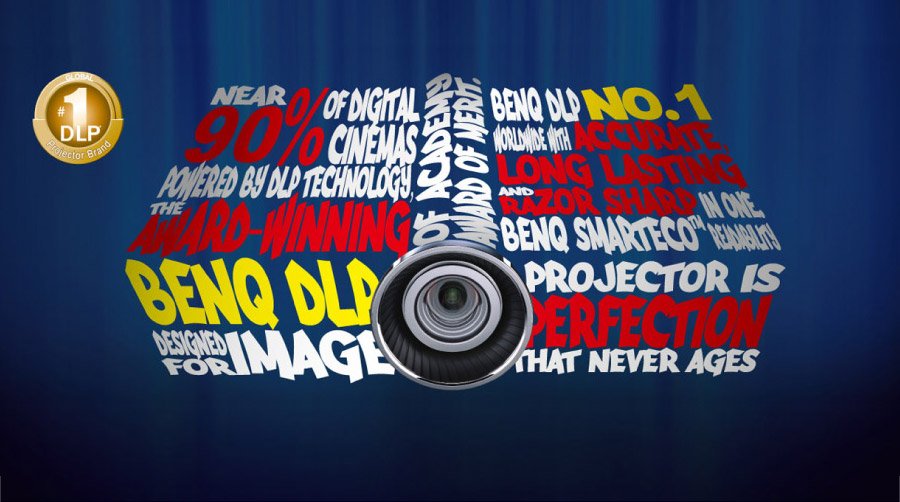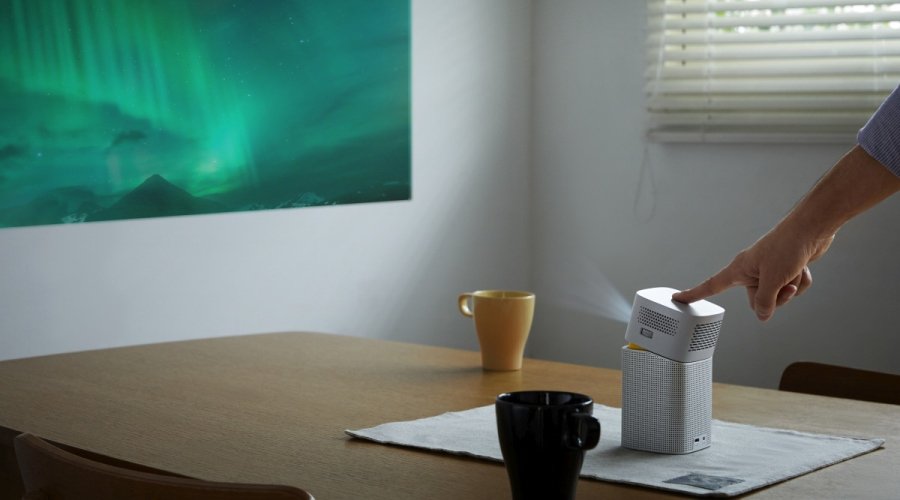First and foremost beyond resolution is brightness. This is the Achilles heel of cheaper projectors and low cost pico models, which we don’t recommend. Not only are they lacking in resolution, but they don’t have the illumination power to deliver good image quality in anything but the darkest environments, and even then you’ll expect more.
Good portable projectors showcase 500 lumens or more, which is superb for diverse low light environments, from board rooms to camp sites in the evening. However, with 500 lumens you’ll get good image visibility even outdoors and during the day, assuming it’s not extremely bright outside. Pico models often only manage as low as 150 lumens, resulting in barely-visible image quality outdoors or even in a brightly-lit coffee shop. Since projectors need to compete with ambient light, low lumen count results in faded, washed out, and overwhelmed images.
Sound is another aspect of portable projectors to consider. Choose devices that have built-in speakers, since you don’t want to depend on external speakers. Those add cables and in any case if you have to work with external sound sources, the projector isn’t all that portable. It’s even better if the integrated speaker has Bluetooth for easy pairing with your phone, laptop, tablet, and other devices. A quality portable projector sports dual speakers rated for 2W each or more, with the aforementioned Bluetooth capability.
Without a built-in rechargeable battery, projectors can’t claim to be portable. If they lack any self-power capacity and need to be plugged to the wall all the time, then clearly we’re not dealing with a portable. If they have an external power adapter or “brick”, then likewise, that’s not really portable with all the hassle that entails. Only fully self-reliant and rechargeable batteries offer the kind of convenience you expect, with a battery life of at least three hours even under load.
Compatibility forms the fabric that binds the many devices we use. Your portable projector should reflect that. We mentioned Bluetooth for connecting to smart devices, but Wi-Fi is essential as well. Your portable projector needs to fit into your home network and of course be a smart device unto itself. You then have HDMI and USB ports that are needed for connections to everything from game consoles and desktop PCs to external hard drives with home videos and photos on them. So add all of these to your checklist when evaluating models before a purchase decision.



